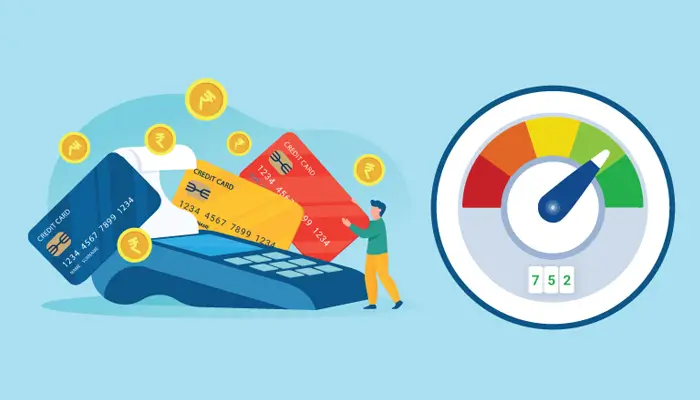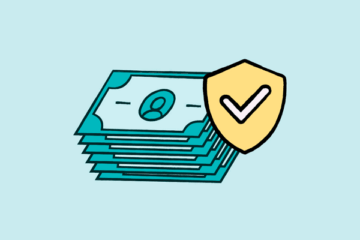Tips for staying financially healthy in times of crisis
Anúncios
In times of trouble people may face situations that call for quick adjustments, to their budgets and money plans. It’s important to be resilient and smart with money during times not to survive the storm but to come out with minimal damage.
It’s crucial for individuals to reassess their spending habits focus on expenses and try to save up for emergencies if possible. Managing expenses wisely can help avoid getting into debt and keep priorities in check. Dealing with debt effectively and understanding options can greatly boost ones strength during a crisis.
Anúncios
Getting advice and exploring different support options like community resources or aid programs can offer relief in challenging times. Being open with creditors looking into insurance choices and staying updated on finances are steps in staying financially stable through unexpected difficulties. Making informed decisions based on a grasp of ones financial situation is vital, for maintaining control even when facing a crisis.
Assessing Your Financial Situation
Assessing your situation is key, to staying in tough times. Start by understanding where your money comes from what you need to spend on essentials like housing and groceries and how debt you have to manage. Take a look at your income sources – salaries, investments, side gigs – to see the picture of your finances.
Anúncios

Prioritize expenses like rent, utilities, food and healthcare, before tackling debt like credit cards or loans. Creating a budget based on this assessment can help you find ways to cut costs prioritize what’s important and manage debt effectively. Keeping track of your finances lets you make choices adjust spending habits when needed and handle challenges confidently during difficult times.
Evaluating Your Income Streams
One must identify all sources of income, which may include salaries, dividends, rental income, or government benefits. Documenting every stream helps in understanding overall financial capacity, ensuring that one is aware of their total earning potential.
- Primary Job: $2,500/month;
- Part-time Work: $500/month;
- Dividends: $100/month.
Identifying Essential Expenses
To make ends meet it’s crucial to prioritize expenses that’re vital, for survival. These usually encompass housing costs, utility bills, grocery expenses and healthcare needs. By keeping an eye on these areas individuals can trim unnecessary expenditures and manage their finances more effectively.
- Mortgage: $1,000 per month;
- Utilities: $300 per month;
- Groceries: $400 per month;
- Healthcare: $200, per month.
Understanding Your Debt
Understanding ones obligations involves making a list of all debts, such, as credit card balances, student loans and mortgage amounts along with their corresponding interest rates and minimum monthly payments. This awareness is crucial for avoiding defaulting on payments and determining the approach to tackling debts for improved financial stability.
- Credit Card Debt: Owes $5,000 with a 15% interest rate; required minimum payment is $150 per month;
- Student Loan: Owes $20,000 with a 6% interest rate; required minimum payment is $200 per month;
- Mortgage: Totaling $150,000 with a 4% interest rate; required minimum payment is $800 per month.
Maintaining well being during challenging times relies on carefully evaluating ones income sources, essential expenditures and debt obligations. This thorough assessment serves as the groundwork, for making choices based on informed decision making.
Building an Emergency Fund
Having an emergency fund is really important, for your security. It acts as a safety net to help you out when unexpected expenses pop up or if you suddenly lose your income. This part will walk you through figuring out how money you need in your fund and ways to save for it effectively. Off take a look at your finances and calculate how much you spend each month on essentials like rent, bills, food, transport and paying off debts.

Try to save up enough to cover three to six months worth of these expenses but the exact amount might change based on things like how secure your job is, if you have dependents and how comfortable you are, with taking risks. Once you know the amount you’re aiming for think about ways to boost your savings faster.
Determining the Size of Your Fund
The ideal size of an emergency fund can vary depending on your situation, such, as your expenses and income stability. A common rule of thumb is to set aside funds to three to six months worth of living costs. Below are expense categories to consider when determining this amount:
- Housing: Rent or mortgage payments;
- Utilities: Electricity, water, heating and internet bills;
- Food;: Grocery expenses and basic nourishment;
- Transportation: Car costs, fuel and public transportation fares;
- Insurance: Health coverage, car insurance and home insurance premiums;
- Healthcare: expenses not covered by insurance, including prescription medications.
It’s crucial to customize your emergency fund based on your needs. This might involve including categories, like childcare or student loan payments.
Strategies for Saving
Here are some specific tips, for building an emergency fund:
- Establish a Monthly Savings Target: Determine the funds size. Calculate the savings needed to reach that goal;
- Automate Your Savings: Set up transfers to a savings account to ensure regular contributions;
- Consider a High Interest Savings Account: Opt for an account, with an interest rate to help your fund grow faster;
- Cut Back on Expenses: Identify areas where you can reduce or eliminate essential spending.
Following these tactics requires commitment and consistency. With time they will help you build an emergency fund.
Managing Debt and Credit
Having an emergency fund is really important, for your security. It helps you handle expenses or sudden income loss keeping your finances stable during times. To figure out how much you need in your emergency fund you should look at your expenses like rent, bills, food, transportation, insurance and debt payments. Experts suggest saving enough to cover three to six months of these costs. Its best to adjust based on your situation.

Like job stability and family needs. Once you know how much to aim for focus on saving. Make a budget to cut out spending and put more towards your emergency fund. Set up savings. Use any extra money like tax refunds or bonuses wisely. Paying off high interest debt can also help free up cash for savings and improve your situation overall. Keep your emergency fund separate, in a high interest savings account to avoid spending it on non emergencies and earn interest rates.
Prioritizing Debts
When funds are limited, prioritizing debts is essential. Debts with the highest interest rates should be tackled first, a method known as the avalanche approach. This involves making minimum payments on all debts, while allocating any extra funds to the debt with the highest interest. On the other hand, paying off the smallest debts first for psychological wins is the snowball method. Here’s a quick comparison:
| Debt Priority Method | Strategy |
|---|---|
| Avalanche | Pay off debts with the highest interest rates first. |
| Snowball | Pay off smallest debts first for quick, motivational wins. |
Negotiating with Creditors
During a crunch people have the option to reach out to their creditors and discuss adjustments, to their terms. This could involve asking for reduced interest rates having late fees waived or arranging a payment schedule that aligns with their condition. Maintaining a line of communication, with creditors is usually. Can help safeguard credit scores from worsening.
Exploring Debt Consolidation
Consolidating debt is a method, for handling debts. When you merge debts into a payment you can often get an interest rate leading to reduced monthly payments. It’s crucial to evaluate any consolidation choices to make sure they truly save money and don’t prolong the repayment period needlessly. This approach not makes managing debt easier but aids in cutting down on the total interest paid in the long run.
Adapting Your Spending
It’s really important to handle your expenses when you’re going through a crisis. Making choices about where to spend your money can really help you build up your strength. To start off take a look, at your finances figure out all the ways money comes in and sort out how you spend it.

Make sure to focus on paying for things, like housing, utilities, food, healthcare and transportation so that you cover your needs. Putting together a budget is a way to keep track of what you’re spending find areas where you can cut back on costs and manage your money more efficiently.
Cutting Non-Essential Costs
Non-essential spending typically includes items or services that individuals can live without. To adapt spending habits:
- List all non-essential expenses: Start by identifying and categorizing what is not critical to maintain basic living standards, such as entertainment subscriptions, eating out, or luxury goods.
- Prioritize and eliminate: Decide which non-essentials can be removed immediately to reduce monthly outgoings.
Seeking Affordable Alternatives
Finding cost-effective substitutes for essential expenses can further ease financial strain. Strategies include:
- Comparative shopping for groceries: Opting for store brands or discount grocers can offer similar quality for a fraction of the cost.
- Reducing utility bills: Consider energy-saving practices like LED lighting, or negotiate better rates with service providers.
Adapting one’s spending to the current economic situation by eliminating unnecessary costs and seeking out less expensive options is a practical approach to maintaining financial health in a crisis.





